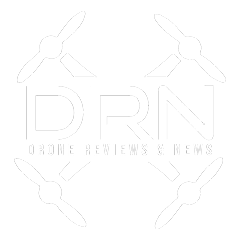Canada’s new rules for Remotely Piloted Aircraft Systems (RPAS) or drones take effect on June 1st, 2019 and the changes are already having a big impact on both commercial & recreational pilots.
Under the previous rules in Canada, recreational pilots did not need to register their drone or have a license to operate. Under the new rules, every Canadian needs either a Basic or Advanced Drone Pilot certificate. The difference between Basic and Advanced operations is pretty simple.
A Basic operation means you intend to fly:
- in uncontrolled airspace
- more than 30 metres (100 feet) horizontally from bystanders
- and, you never fly it over bystanders
For the majority of recreational drone operators, a Basic certificate will likey cover 99% of their intended use.
An Advanced operation means you intend to fly under any 1 of these conditions:
- You want to fly in controlled airspace
- You want to fly over bystanders
- You want to fly within 30 metres (100 feet) of bystanders (measured horizontally)
The new rules mean there is no longer a distinction between commercial and recreational flight. The old rules, which required cumbersome Special Flight Operation Certificates (SFOC) from Transport Canada for commercial flights effectively prevented a cottage industry of aerial imaging businesses from taking root. Operators had to apply online for SFOCs that could take weeks or months for approval.
The new rules are actually great for anyone who intends to start using their drone for business. It is now a lot easier to start a side hustle with your drone.
But Canada is a great big place full of Instagram worthy scenery that attract over 20 million visitors each year, two-thirds of which come from the US. And an increasing number of these guests are packing drones, and there’s a special section of the new drone rules just for foreigners that may make you rethink whether to bring your drone to Canada.
Foreigners, meaning anyone “who is not a Canadian citizen, permanent resident or a corporation incorporated by or under federal or provincial laws”, must have an approved SFOC to fly a drone for any purpose (recreational, work or research).
If you’re a Foreigner, and intend to fly your drone in Canada for any purpose (recreational, commercial or for research) you’ll need an SFOC to do so. You must already be allowed to use the drone for the same purpose in your home country as well.
As we indicated above, there are no set timelines for how long it takes Transport Canada to issue an SFOC, which doesn’t help if you’re planning a vacation to Canada. Our best advice is that you apply for an SFOC well in advance of your intended travel dates and keep your fingers crossed.
How to apply for an SFOC
- Read and understand all information in the Special Flight Operations Certificate guidance advisory circular
- Complete an Application for a Special Flight Operations Certificate form [PDF, 1.25 MB] and gather the documentation specified in the application
- Send the form and documents to:
Remotely Piloted Aircraft Systems Centre of Expertise
700, Leigh-Capreol Place Dorval, Quebec H4Y 1G7
Email: TC.RPASCentre-CentreSATP.TC@tc.gc.ca
Penalties for ignoring the new rules are steep, and we expect 2019 to be the “Summer of Enforcement” as Transport Canada starts policing the new rules:
Penalties
You could face serious penalties, including fines and/or jail time, if you break the rules.
Fines for individuals
- up to $1,000 for flying without a drone pilot certificate
- up to $1,000 for flying unregistered or unmarked drones
- up to $1,000 for flying where you are not allowed
- up to $3,000 for putting aircraft and people at risk
Fines for corporations
- up to $5,000 for flying without a drone pilot certificate
- up to $5,000 for flying unregistered or unmarked drones
- up to $5,000 for flying where you are not allowed
- up to $15,000 for putting aircraft and people at risk
If you break more than one rule, you could receive multiple penalties.
If you’re still planning to bring your drone to Canada, we suggest you read up on the rules and sharpen your pencil to get going on your SFOC application.
Otherwise, leave the drone at home.




Pingback: Canada now requires a written exam for RC model aircraft flying – Guide to VR 3D Photos and Video
Hi,
I know this is an old article but does this still apply to drones that weigh less than 250 g?
I am a Canadian citizen living in USA. Can I visit home and bring my CJI Mini 2 without any hassles?
Thanks, jruh
Yes you can. 100%
Hi, as an American citizen, Can i bring my DJi mini to Canada and fly it without any permit or license?
Yes!
All drones under 250 grams, including the Mini, Mini 2 and the new Mini 3 Pro are basically excluded from the Canadian Aviation Regulations (CARs).
Where in Canada do you plan to travel?
Just be aware that all drones are prohibited in National Parks and most Provincial Parks.
Happy travels!
We posted an updated article on this subject today just for you!
https://dronereviewsandnews.com/taking-your-drone-to-canada-what-you-need-to-know/